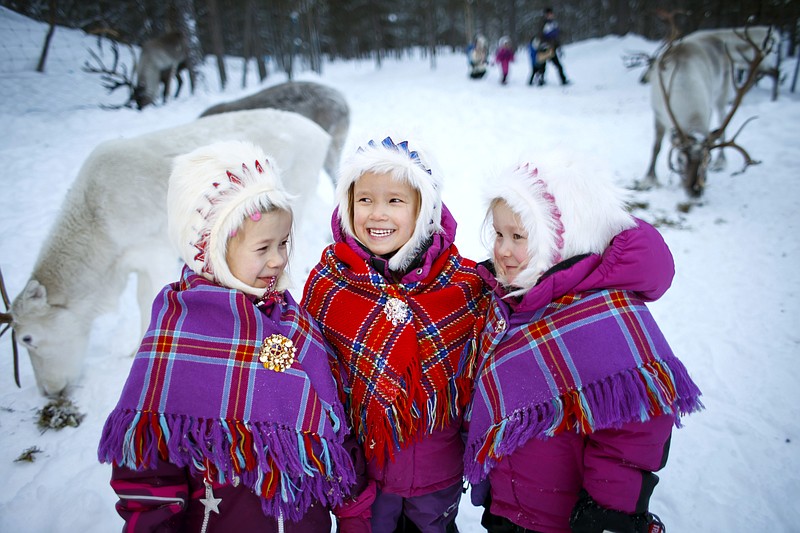HELSINKI (AP) - With chants, poetry and traditional dress, the indigenous Sami people of Europe's Arctic north, formerly nomadic reindeer herders in Lapland, celebrated their national day Monday with hundreds of events across the Nordic lands.
The Sami settled with their reindeer herds 9,000 years ago in Europe's Arctic and now number 70,000 people spread across Norway, Sweden, Finland and Russia.
Monday's start to the weeklong festivities - attended by Norwegian King Harald and Norwegian Prime Minister Erna Solberg in Norway, and Finland's president, Sauli Niinisto, in Finnish Lapland - marked the centenary of the Sami people's first congress in the Norwegian city of Trondheim in 1917.
Seventy-five years later, the Sami - formerly known as the Lapps - declared Feb. 6 their national day.
Speaking in Inari, northern Finland, Niinisto said he hopes cooperation between the government and "the Samis - the only remaining indigenous peoples in the EU," would continue.
For generations, the Nordic ethnic majority sought to assimilate the Sami into mainstream culture by banning their language and culture. Russian Samis, meanwhile, were isolated by the Iron Curtain during decades of Soviet rule.
Now Sami have their own parliaments, schools, newspapers and broadcasts in their own language broadcast on national radio and TV.
In Trondheim, Solberg said the treatment of Samis by the Norwegian majority was "a stain" on Norway's history.
"Previously, we have apologized on behalf of the Norwegian people, for the Norwegianizing policy that was led for not only decades, but in fact hundreds of years, where we tried to remove the Samis' cultural expression," she said.
She also decried the "poor educational facilities" offered to the Arctic people for decades.
The formerly nomadic Samis nowadays live mostly modern lifestyles. Yet some still tend reindeer, wear bright-colored traditional dress and perform joik songs - a mixture of chanting and poetry -as they did Monday at several events.
